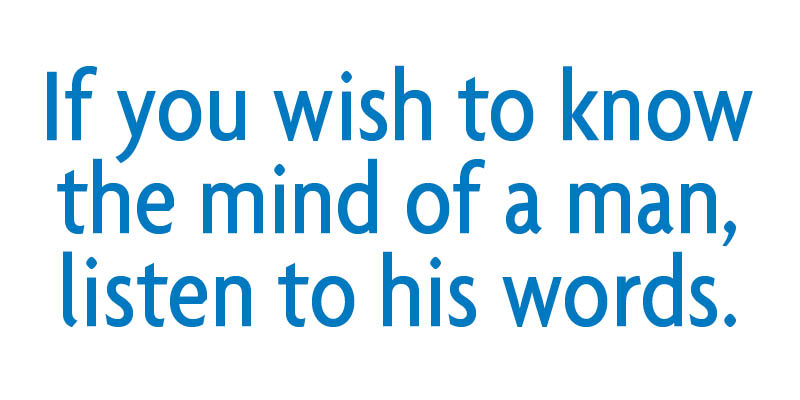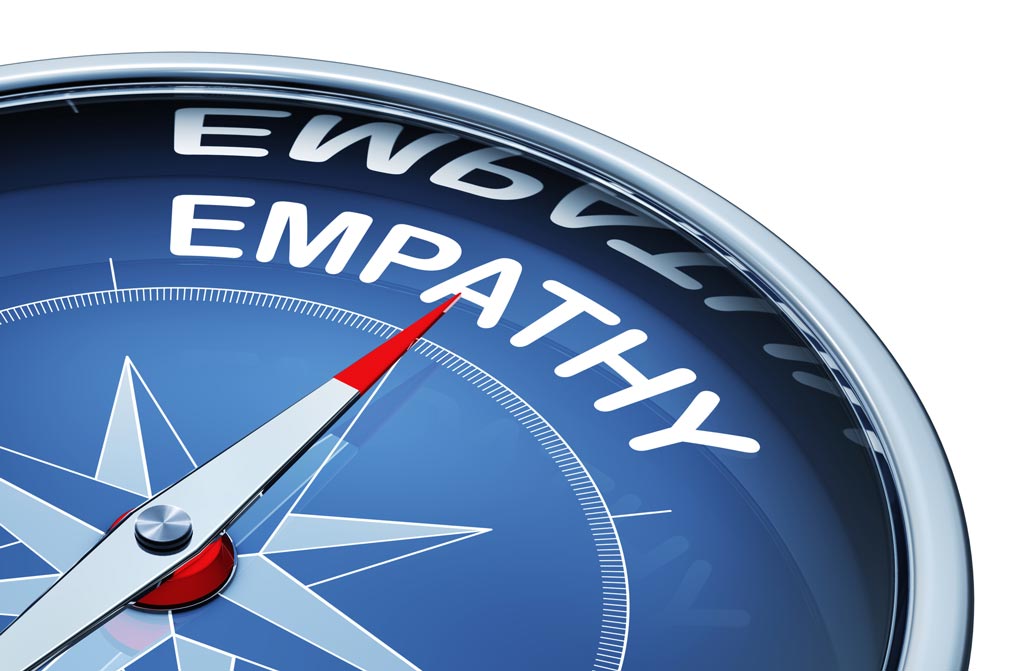In our homes, in our workforce, and in our communities, people are struggling with thoughts, emotions, stresses and challenges. We need strong leadership to help us navigate through uncertainty and volatility, help foster peace and healing, and help people embrace their new normal and move forward. Leading a team in the time of both COVID-19 and the realities of systemic racism in our communities and nation can be challenging at best and overwhelming without tools to rely on.
The number one tool you need right now is empathy.
Empathy is the ability to be aware of and understand the feelings and needs of others. Empathy doesn’t necessarily mean you agree with the perspective of the other person, but that you acknowledge their point-of-view, what they are feeling and experiencing, and how it impacts their actions.
As Daniel Goleman said, “Empathy is the essential building block for compassion. We have to sense what another person is going through, what they are feeling, in order to spark compassion in us.”
We all need empathy and compassion right now to help friends, families, co-workers, and our communities deal with a wide range of emotions brought on by such disruption in our world – anger, shock, fear, stress, resistance to letting go, to name a few.
Empathy is a critical component to solving difficult problems and moving forward.
Empathy builds trust
When you take the time to listen and truly understand the needs of others you strengthen relationships and trust. People need to be seen and heard at a core level, now more than ever. They need to know they are valued and cared for. When you listen, people feel safe engaging in cooperative dialogue.

~ Johann Wolfgang von Goethe
Empathy builds understanding
Active listening leads to learning and insight. True understanding means you can provide what a person ACTUALLY needs rather than what you think they need. It helps you uncover underlying issues. Empathy allows you to work past assumptions, to think, and take educated action. It allows you to provide true support to help your team achieve their goals.
Empathy fosters cooperation
Empathy creates an environment of collaboration where morale and productivity are high. A safe, understanding environment is a fertile place for teams and emerging leaders to grow. It is up to you to provide this environment.
Your leadership role is to aid and support your teams in their work. Not to fix problems, but rather to equip your employees to meet and overcome their challenges.
Listen
How do you achieve this level of empathy? The KEY step is to LISTEN.
As an empathetic leader, you spend less time talking and instead actively and attentively listen to the perspectives and needs of the individual and of the team.
In the movie Avatar, the Na’vi people greet one another with “I SEE YOU.” The greeting conveys seeing a person with an open mind and heart and understanding.
When you truly give another your full attention and LISTEN to the message in their words, you can see them in a fuller and richer way.
Listening seems like a simple thing, but true attentive listening is somewhat of a lost art.
True active listening is a skill that needs developing. It requires that you set aside preconceived ideas, and it acknowledges that the dialogue in your mind is not the same dialogue in another’s. Active listening demands that you put away distractions, phone, laptop. With true empathy you acknowledge that each individual’s feelings and life experiences are unique.
Become an Empathetic Listener

~ Dr. Stephen R. Covey
1. Listen to understand
A very powerful and true statement by Dr. Covey. When you listen with the intent to reply, you selectively hear only parts of the conversation, and miss the deeper meaning altogether. You need to listen with the intent to understand. To fully do this, ask clarifying questions to make sure you understand others’ perspectives and, importantly, their intentions. Dr. Covey also said “We judge ourselves by our intentions and others by their behavior.” Rephrase their answers back to them to make sure you fully understand where they are coming from.
2. Create an environment for understanding
When you are distracted or are multi-tasking, you will not truly absorb the conversation. How many times has a spouse, child, coworker expressed frustration because a lack of attention created misunderstanding or because they didn’t feel heard? Focus on the conversation, stay present and engaged, exhibit inclusive body language such as direct eye contact and open body language.
3. Remove your biases and assumptions
It is natural to listen to others through the lens of your own thoughts, your own experiences, your own feelings and needs rather than those of the speaker. You might lean on stereotypes and judge people and set expectations according to those judgements.
In addition, you may inaccurately anticipate how someone will respond to you and read meaning into their words that deliver against those false assumptions.
It’s not about you.
Importantly, you must understand that you can’t generalize a person’s reaction to these times. Based on his or her unique experiences, background, values, personality type, each individual will react in their individual way.
You need to truly understand each individual team member so you can best help him or her transition through the chaos.
VIRTUAL LISTENING
Much of active listening is paying attention to not only the words that are being said, but the non-verbal part of communication. This is made so much harder where your team may be dispersed, working from home, and communicating via conference calls, emails and Zoom meetings.
You can set a cooperative tone in these spaces with intention. Acknowledge the gap, set a clear agenda, encourage open conversations, and use community building language to reinforce team spirit (“we” rather than “I” for example).
JOIN ME IN LISTENING
Demonstrating empathy is important in our everyday personal and work lives, but it is vital in times of crisis. With so much volatility and uncertainty outside of your control, remember that you can control how you respond to things.
Showing empathy and compassion to your teams, listening to them as individuals, and role modeling the way through stress will help your teams adapt, accept, and advance.
A PERSONAL NOTE
In direct response to the trials of our country right now, I don’t have answers, and I don’t pretend to know what it feels like to lose a loved one to violence or a pandemic, but I believe in my heart that empathy and compassion are key. I am standing in solidarity. I am listening. I am learning.


